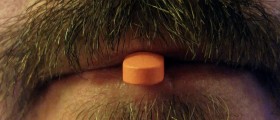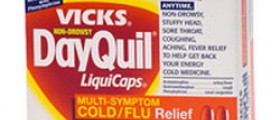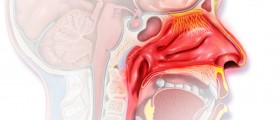
Allergies are usually treated with two kinds of medications. These are antihistamines and decongestants and some of them might be found as OTC (over the counter) drugs. Allergic reactions can be treated with OTC preparations, but if you develop sinus or ear infections, cough, breathing problems or headaches it is best to consult your doctor.
Decongestants
These anti-allergy medications may be tablets, liquids or eye or nose drops. Their main function is to constrict the blood vessel in the nose, and help with the congestion and breathing. Avoid using nose drops for more than 3 days in a row, because it might cause rebound congestion. Decongestant eye drops are far less efficient than the prescription eye drops, because they don’t contain antihistamines. Decongestants can cause adverse effects, including the headaches, sleeping problems, tremor, fast pulse and heartbeat. Do not use these drugs if you suffer from hypertension, diabetes, prostate or thyroid disorder. Some medications might also interact with these medications, so always consult your doctor if you could use decongestants to treat your allergy.Antihistamines
Antihistamines block the effects of histamine in the body. The allergy triggers the release of histamine and causes runny nose, itching and sneezing characteristic for allergic reactions. Use these drugs before the allergy starts and during the season, to prevent the unpleasant symptoms.There are three different types of OTC antihistamines, including the alkylamines, ethanolamines and ethylenediamines. Best known antihistamines are: Actifed, Atrohist, Benadryl, Bromfed, Chlor-Trimeton, Dimetane, Dimetapp, Nolahist, Tavist and Triaminic. Antihistamines can significantly reduce the allergy symptoms, but they can’t cure the allergy itself. There is a difference in the length of the effect these medications cause. Some start working after just 20 minutes and their effect last for 4 hours, and other medications have effects for 8 - 12 hours. Fast-working antihistamines are therefore used to bring instant relief for allergic patients. Long-lasting drugs are better used before bedtime, to ease the symptoms and provide peaceful sleep. These medications have certain side effects. Most antihistamines will make you feel drowsy and sleepy, affecting your normal work. There is also potential of causing dry mouth, digestion and urination issues and also vision problems, especially if you have been using antihistamines in high doses. Children are very sensitive to these medications, and they might experience irritation, anxiety and nightmares. Do not drive or operate potentially dangerous machinery while taking antihistamines. If your work requires such a position, consult your doctor and ask for a prescription non-sedative antihistamines, such as Hismanal, Allegra, Zyrtec or Claritin. Patients suffering from prostate problems, angle-closure glaucoma, emphysema or chronic bronchitis should not use these medications. Do not take antihistamines if you are already using anti-depressants, tranquilizer or sleeping pills. Do not combine antihistamines with alcohol.







-Help-Treat-Your-Cold-Or-Flu_f_280x120.jpg)







_f_280x120.jpg)
Your thoughts on this
Loading...